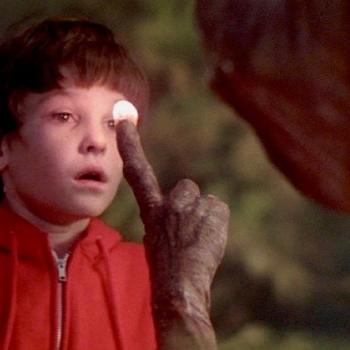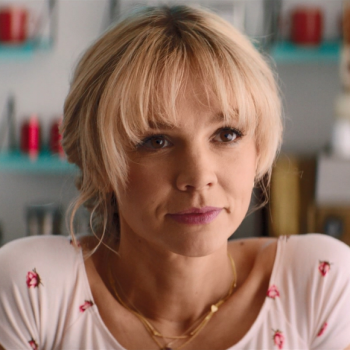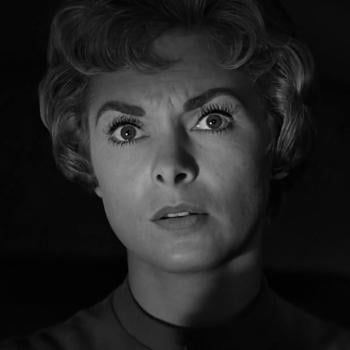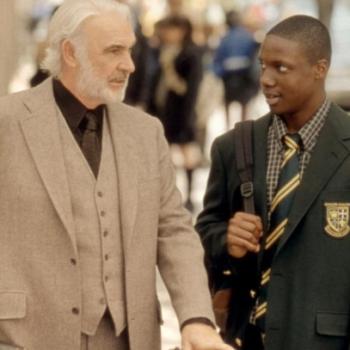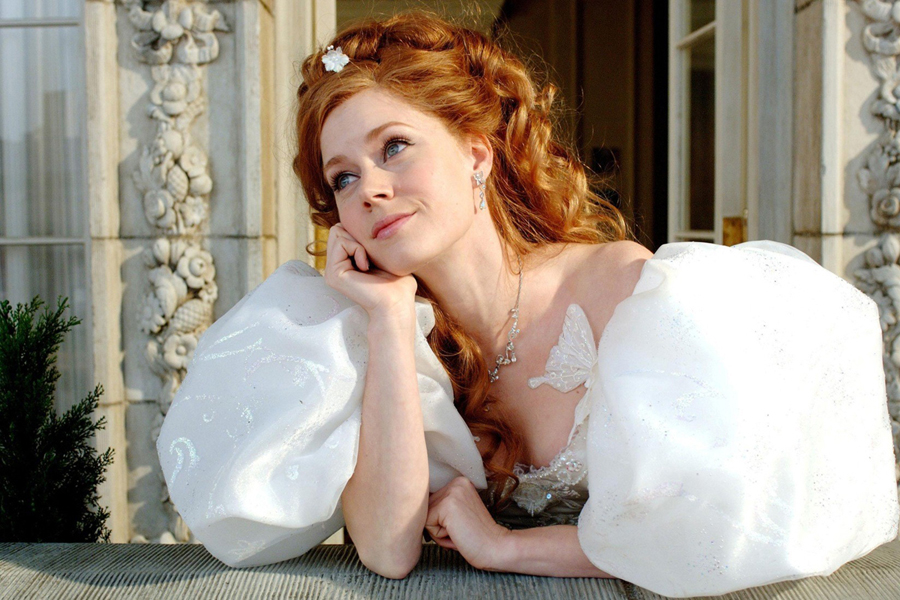
A few weeks back when I talked about Scream, I mentioned that self-aware movies are generally a harder sell for me. I acknowledged Scream was a rare exception, but I also casually mentioned Disney’s 2007 pastiche fairy-tale, Enchanted, without clarifying that said film definitely falls into the category of “meta” done responsibly. And as the long-awaited sequel hits streaming this week, I guess now is as good a time as any to reflect on why Enchanted is so aptly named.
Enchanted sees fairy tale princess incumbent, Giselle, banished from the magical world of Andalasia on the morning she is to be married to the charming Prince Edward. She lands in modern day New York City where no one has time for happy endings, and where she is soon rescued by Robert, a pragmatic but good-hearted divorce lawyer. Robert doesn’t know what to make of her stories of a magical fairy-tale world, but he can’t help but be moved by her ultimate sincerity and the way she leaves happiness in her wake. As Robert tries to help her find her way home, he can’t help but wonder if maybe there is a place for Giselle in his world.

Walt Disney Studios via “Collider”
Enchanted floats on the ironic premise of a fairy tale princess interacting with a world that considers itself too mature for fairy tales. The first sight Giselle sees in New York is a blinding array of billboards and advertisements, tokens of consumerism and indulgence. The first people Giselle interacts with shout at her, or else ignore her completely, as they drag her along the crowd. This is not a world where kindness is valued. This is not a world that has time for a fairy tale princess and her dreams of everlasting love.
Way back when we talked about Pan’s Labyrinth, we talked about belief in, or at least reverence for, fairy tales as a metaphor for religious belief in the modern day. Maybe some of us have been derided for seeing the world as we want to and not as it is, or just for “believing in fairy-tales.” In describing why he discourages fairy tales for his daughter, Robert explains, “I just want her to be strong. To be able to face the world for what it is.” Enchanted understands that experience, and we see it at play as Giselle tries to figure out where she fits in this strange new world. For the first third of the film, Giselle is the butt of almost every joke. It’s almost like the film is laughing at her and her old-fashioned idealism, or suggesting that such virtues may have been useful in some rose-colored past, but could never survive in this day and age. But the wisdom of her worldview reveals itself in the latter half of the film.
Inherent in Giselle’s eccentric worldview are optimism, compassion, creativity, faith, and sincerity. She’s kind to people who are generally ignored, she’s generous with her compliments, and she inspires others to hope for a better tomorrow. As Giselle is allowed to spread her wings and touch a wider sphere of the world, the world that once cast her on the streets begins to step in time to her dance. Turns out true love isn’t a uniquely fairy tale desire.

I think there’s a lesson to be learned from Robert’s experience as well. He starts the film a product of his cynical world, but it’s fair to say that he has some of this same idealism latent in him as well. He chooses to help out a woman who needs his assistance (and is possibly out of her mind) when no one else will. When that initially proves to be too much to handle, he very nearly cuts her off. And who can blame him? Being truly charitable is demanding. But isn’t there also something refreshing about it as well? It’s that quiet voice telling him that Giselle is wiser than the angry streets of New York would ever give credit for that compels him to continue helping her, and it’s what ultimately leads him to happiness.
Deadening one’s soul might feel like maturation, but doesn’t it take greater character to believe in something when the world tells you it isn’t there? Doesn’t it take greater insight to discern the light in a world that seems to only offer darkness?
Sometimes certain beliefs might feel naive or out of touch because it’s just easier to give up and not get your hopes up. Current social attitudes expect us to simply surrender to the hostility of the world as it is. What Giselle offers is an alternative: remaking the world into something better, bringing song and love to places that need it. Creating happily ever afters not only for ourselves, but for others as well.

Walt Disney Studios via “YouTube”




